- Home
- Sam Savage
Glass (Small Press Distribution (All Titles)) Page 19
Glass (Small Press Distribution (All Titles)) Read online
Page 19
Potopotawoc was mostly a time without typing, except for copying, and later, when I came back from there to the house with flowered paper, that was nearly a time without typing. With Clarence gone all day in the car and the woods too hot and dusty to be pleasant to walk in, one might assume that I would have typed a great deal there, before going off, but I don’t recall typing anything then either. I must have typed some, though: had I not typed at all during the summer we moved to the wallpaper house, I would remember it as a dry period. I don’t remember it as a dry period. In the place where I live now, as I must have stated at the outset, I went several years without typing a word, when the typewriter sat in the closet, and those years are marked in my mind by the absence of typing, and I do think of them as the dry years. When I came back from Potopotawoc, though, I am sure I did not type. I stayed in the flower-papered house with Clarence and Lily. I stayed in bed a lot of the time, though I was not ill. I listened to them in the yard shooting cans with pistols, competing. It was winter and the house was cold. On sunny days I took long walks along the shoulder of the highway, because I did not like walking in the woods, which had been fields so recently they were more like thickets of small pine trees than a proper forest. I came back from Potopotawoc at the end of one summer, and I left again at the end of the following winter. Clarence and Lily stayed on; they remained with each other, as we agreed they ought, and I went away.
I can see myself in the past, as if I were standing outside my life, an observer with a camera. I can see myself, for example, with a group of friends running down the steps of Founders Hall at Wellesley or sitting across from Clarence in the dining room of the Norfolk Hotel in Nairobi. I can see from my expression that I was happy at those moments, I have no doubt that I was happy, but I am unable to refeel the happiness. The fact is, I cannot imagine it.
I am going to buy a red pencil. Red pencils never have erasers. They are for people who are certain.
I have not typed anything for days and days. Days and nights, I should say, because I sat at the typing table sometimes late into the night without typing. Something must be wrong with the compressors; they have grown suddenly louder, while I can scarcely hear the traffic in the street below. I am not sure that I want to type anymore.
A little while ago I was standing at the window when fire engines passed, and I did not hear the sirens, even without my earmuffs. Why am I saying this, when what I mean is, I did not hear them loudly? Because my thoughts are roaring, probably—roaring, I want to say, as loud as compressors on the roof of an ice cream factory. They are screaming, actually. “Edna’s thoughts are screaming like moths.” I don’t know what they are screaming about.
Ineluctable undeflectable leeway. Hopeless helpless drift to the side, of a woman talking, talking, because there is nothing else left. I could ask why. Of course somewhere on some plane of existence there is always nothing left. Most people do not reside there, though. The question is, how did she get there? And why does she stay there? She puts food in her mouth, gets dressed, breathes. Is the world slipping from her? Is it getting small as if seen through a long tube? Is it becoming dark?
Report on her current condition: reflective, freighted with souvenir, lachrymose.
I have spent the last penny of what I had to live on this month. On a pastry and a latte at Starbucks.
“Not another word,” I tell myself. No more typing. And no scribbling either, or smearing, or jotting. From now on silence. This is the last you will hear from me. O.K. Good-bye. I think the fern is quite thoroughly dead. If I were old-fashioned British, like the hunter on the cutout, I could say it was beastly dead, which would be amusing, said of a plant.
Roaring. And above the roaring, knocking. Of course I am not off my rocker—that, one could say, is the whole problem.
The point is to keep on talking, where by “talking” I mean typing.
It is not even solitude, it is worse than solitude, it is a mind full of items.
All my life my bonnet was full of bees.
Knocking again, accompanied now by several voices, a woman’s, not Potts’s, louder, saying “Edna, I want to talk to you.” They can hear me typing. It seems pointless to pretend I am not here. I am going to pause now. I suspect the next blank space will be the biggest. I am going to pause, answer the door (they are still there), but first I am going to wind a clean sheet on the platen. If this ever becomes a book, that will be the last page. Perhaps before I open, or after I open, with the help of whoever is out there, I will gather up all my pages from the floor. They will make a respectable pile, I think. Clarence would say, “That’s quite a stack, old girl,” probably. And then when I come back I will bring a red pencil. I will carry the stack over to the brown chair, and I will take some things out and put a lot of other things in, I suppose, and then I will see.
COLOPHON
Glass was designed at Coffee House Press, in the historic Grain Belt Brewery’s Bottling House near downtown Minneapolis. The text is set in Fournier.
FUNDER ACKNOWLEDGMENT
Coffee House Press is an independent nonprofit literary publisher. Our books are made possible through the generous support of grants and gifts from many foundations, corporate giving programs, state and federal support, and through donations from individuals who believe in the transformational power of literature. Coffee House Press receives major operating support from the Bush Foundation, the McKnight Foundation, from Target, and from the Minnesota State Arts Board, through an appropriation from the Minnesota State Legislature and from the National Endowment for the Arts. Coffee House also receives support from: three anonymous donors; Elmer L. and Eleanor J. Andersen Foundation; Around Town Literary Media Guides; Patricia Beithon; Bill Berkson; the James L. and Nancy J. Bildner Foundation; the E. Thomas Binger and Rebecca Rand Fund of The Minneapolis Foundation; the Patrick and Aimee Butler Family Foundation; the Buuck Family Foundation; Ruth and Bruce Dayton; Dorsey & Whitney, LLP; Fredrikson & Byron, P.A.; Sally French; Jennifer Haugh; Anselm Hollo and Jane Dalrymple-Hollo; Jeffrey Hom; Stephen and Isabel Keating; the Kenneth Koch Literary Estate; the Lenfestey Family Foundation; Ethan J. Litman; Mary McDermid; Sjur Midness and Briar Andresen; the Rehael Fund of the Minneapolis Foundation; Deborah Reynolds; Schwegman, Lundberg & Woessner, P.A.; John Sjoberg; David Smith; Mary Strand and Tom Fraser; Jeffrey Sugerman; Patricia Tilton; the Archie D. & Bertha H. Walker Foundation; Stu Wilson and Mel Barker; the Woessner Freeman Family Foundation; and many other generous individual donors.
To you and our many readers across the country,
we send our thanks for your continuing support.
Good books are brewing at www.coffeehousepress.org
Table of Contents
Cover
Half Title Page
Title Page
Copyright
Epigraph
Glass

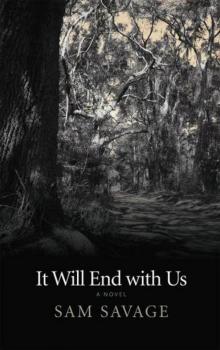 It Will End With Us
It Will End With Us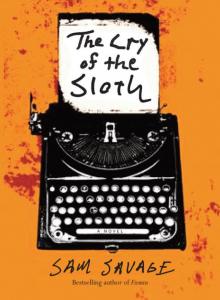 The Cry of the Sloth
The Cry of the Sloth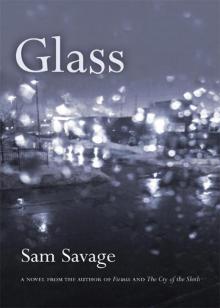 Glass
Glass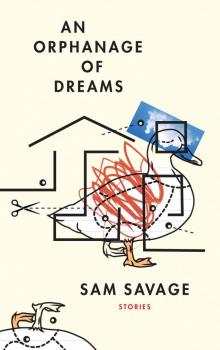 An Orphanage of Dreams
An Orphanage of Dreams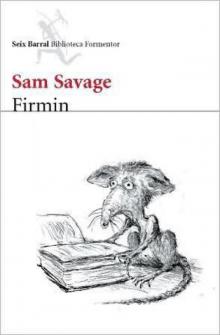 Firmin
Firmin Quantum Voices
Quantum Voices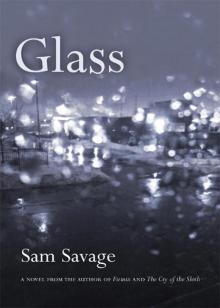 Glass (Small Press Distribution (All Titles))
Glass (Small Press Distribution (All Titles))